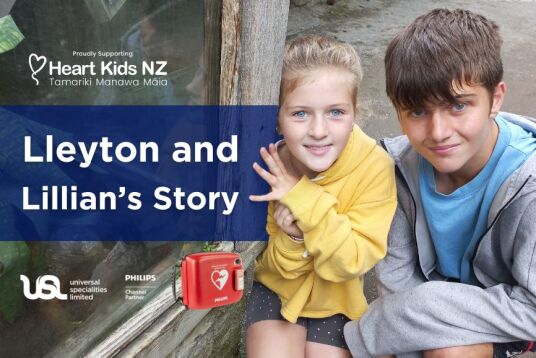Mother & Baby
Breastfeeding Awareness Week
August 01, 2022

August 1-7th is World Breastfeeding Week, a week to raise awareness about the benefits of breastfeeding and supporting mothers to breastfeed for as long as they choose. While breastfeeding can at times be a difficult and overwhelming journey, breastmilk provides your baby with all the nutrition they need in the first 6 months of their life and can have benefits for both baby and mum.
There are many different demands on mothers, meaning that for some women they don’t always feel they have the support to be able to continue their breastfeeding journey, or that it is an accessible option for them. In New Zealand, support is available for women through resources such as SmartStart, your Midwife/LMC or groups such as Plunket. Access to lactation consultants is also available through the DHB (publicly funded), or privately.
This Breastfeeding Week, we share an overview on breastfeeding including the benefits, common problems and suggested solutions and our top products to help you on your breastfeeding journey.
The Benefits
As well as providing your baby with important nutrition and being easy to digest, there are several other benefits to breastfeeding for baby which include:
- Can help give baby protection against some illnesses and may help to reduce the severity of some infections such as ear and respiratory infections
- May protect against issues like eczema, asthma, and reflux
While breastfeeding can feel challenging, there are also several benefits to mum which include:
- Allows you to rest while feeding
- Helps you to feel close to and bond with your baby
- Research has shown that women who breastfeed are less likely to develop some cancers and bone disease
Common Problems and Suggested Solutions
While breastfeeding is highly recommended, some women will find it difficult or will be unable to. While this can be distressing, it is important to remember to be kind to, and avoid putting pressure on yourself. Often, there will be a solution to the problem you are experiencing, and it is important to remember that help is available.
Baby Won’t Breastfeed
It is important to remember on your breastfeeding journey that both yourself and baby are learning how to do this! It can be unsettling when your baby won’t breastfeed, especially if they had been previously feeding well. Usually, the issue is temporary, and it is your baby’s way of telling you something isn’t quite right. Some common reasons why baby won’t breastfeed include:
- Baby is feeling unwell, or is in pain
- Your baby is overtired or distracted
- Your baby is having trouble latching onto the breast
Suggested solutions:
- Try feeding after a warm bath when baby is more relaxed
- Breastfeed in a quiet place, or try playing some relaxing background music
- Try a new feeding position
If you find the problem of baby not feeding is on-going, it is important to seek advice from your healthcare professional.
Low Milk Supply
Generally speaking, most mothers do produce enough milk for their baby, however there are instances where the milk supply is too low to meet baby’s growth needs. The concern of low milk supply is a common reason women stop breastfeeding, as they worry they are not able to meet their baby’s demands. The possible causes of low supply include:
- Your baby is not latching well to the breast or feeding effectively
- Your baby does not feed often enough
- Previous breast surgery
- Some medical and hormonal conditions
Suggested Solutions:
- Where your baby is not latching well or feeding effectively, it is recommended to seek help from a lactation consultant if possible
- Frequent feeding is necessary to boost milk supply, however if baby is not feeding effectively it is recommended to express. This can help stimulate your milk supply and still ensures baby is getting breastmilk
- In cases where there is a medical condition, your GP can prescribe medication to help with supply if suitable
- Ensure you are looking after yourself and eat health, nutritious meals and snacks and ensure you are getting enough water
Sore and Cracked Nipples
Sore nipples are most common in the first week after birth, and usually settle once your breasts have become used to breastfeeding. While most women expect to experience sore and cracked nipples, nipples should not be sore during a feed and any soreness you experience should wear off 15-30 seconds after baby has latched. Possible causes of sore and cracked nipples include:
- Baby in wrong position at the breast
- Wearing a nursing bra that is too tight
- Dry skin, or conditions such as eczema
Suggested Solutions:
- Consult a lactation consultant to see if there is an issue with baby’s latch and if this can be corrected
- Wear loose fitting clothes
- Ensure you change nursing pads often, and that your nipples are completely dry after feeding
If soreness persists, especially into the second week or if gets worse it is important to consult with a healthcare professional to ensure there is not another issue.
Our top products to help you on your breastfeeding journey:
Multi-Mam Compress 12pk to soothe sore nipples
Mam Care Beast Pads 30pk extra thin and discreet breast pads to ensure you feel comfortable when breastfeeding
Gaia Nipple Balm 40ml Lanolin-free balm enriched with natural oils to help soothe and protect sore nipples
Mam Care Nipple Shields 2pk Offer short-term support during breastfeeding
Sources:
https://www.plunket.org.nz/caring-for-your-child/feeding/breastfeeding/
https://www.healthnavigator.org.nz/health-a-z/b/breastfeeding-unable-to/
https://www.thewomens.org.au/health-information/breastfeeding/breastfeeding-problems/low-milk-supply
More related articles

Navigating Life with Heart: Lleyton and Lilian's journey of strength and resilience through congenital heart conditions
A family's journey of resilience and hope through congenital heart conditions. From Lleyton’s battle with Tetralogy of Fallot to managing Long QT Syndrome with his sister Lilian, discover how Heart Kids NZ supported them.
